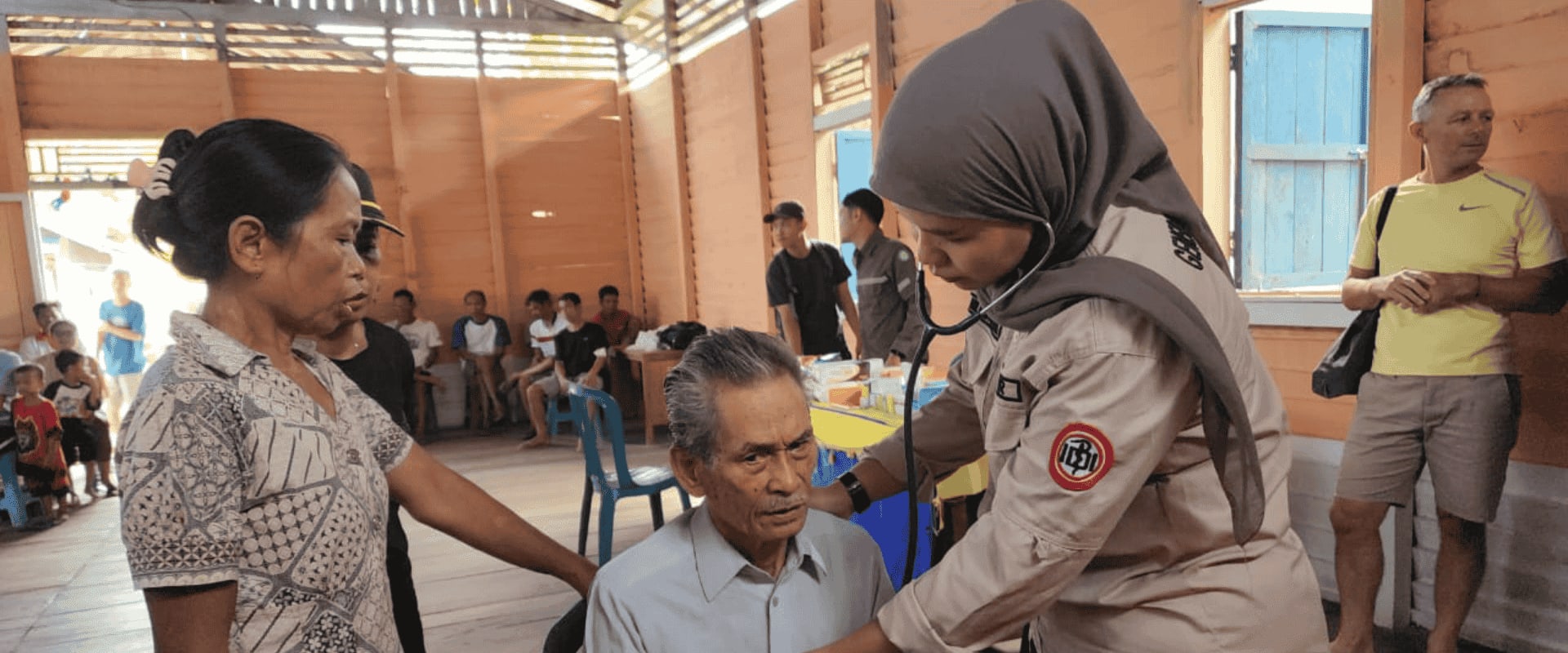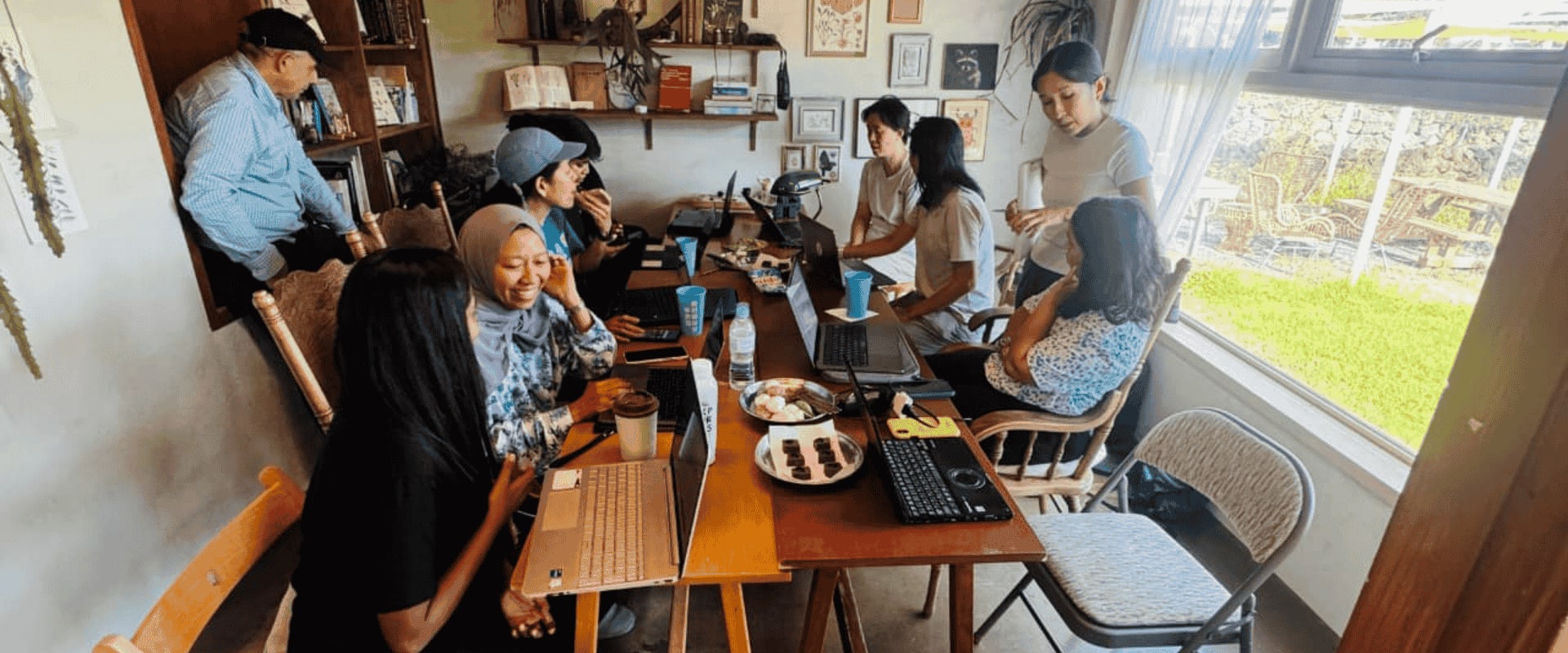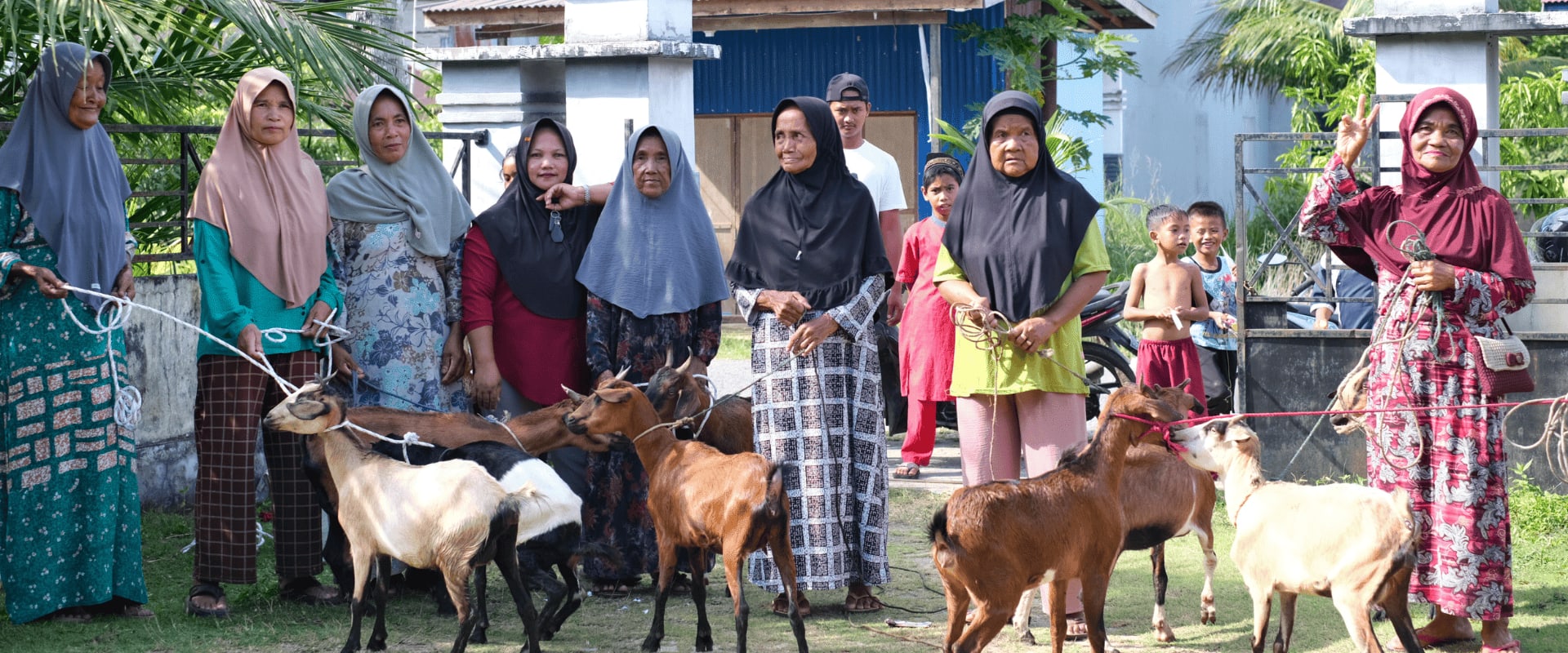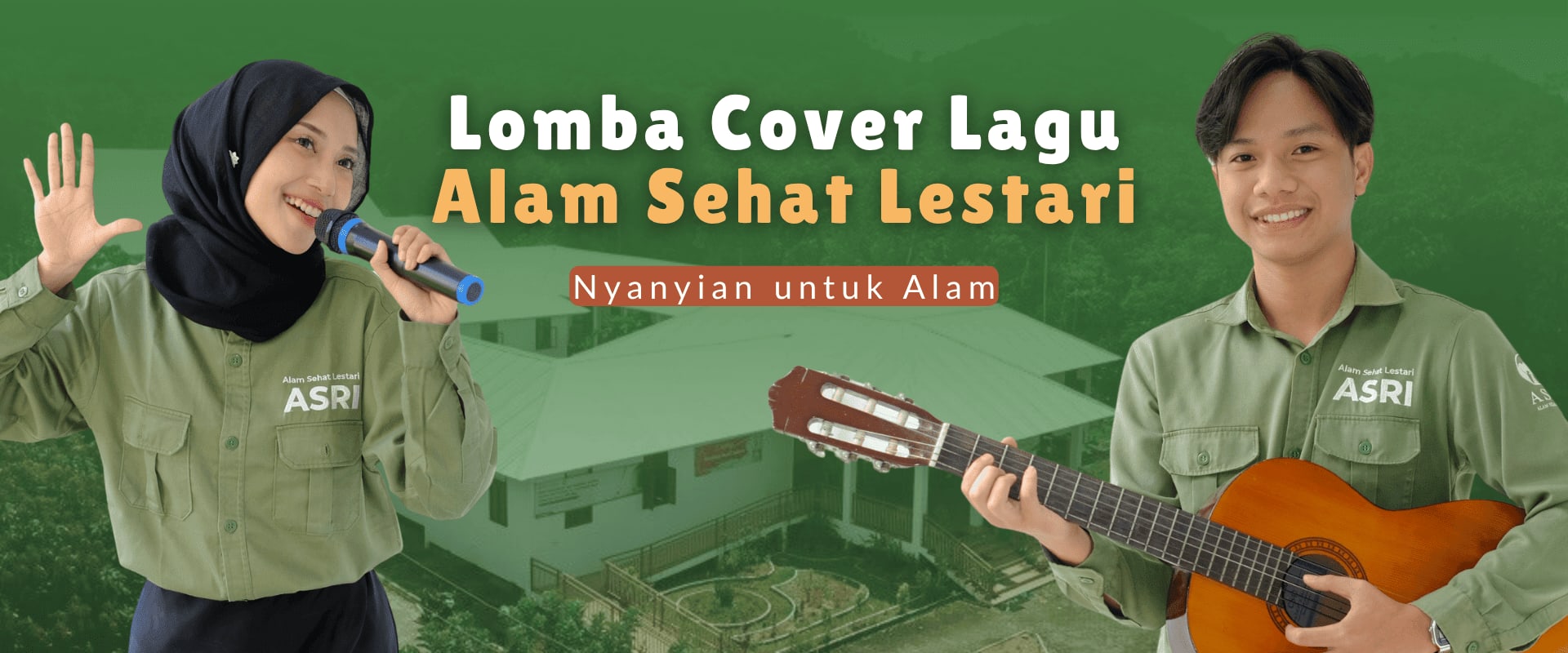From Logger to Forest Guardian
“Shhh”
Muslianto’s hush cuts through our conversation, and the group of hikers falls silent. He points upwards, at an unremarkable jumble of leaves and woven branches at the peak of one of the trees that towers above us.
“It’s an orangutan nest,” he whispers.
Just then, the dense foliage of the jungle canopy begins to shake. A red ape emerges from its cover, clambering along a thin branch. It’s only a gibbon — no orangutans this time. We continue along “Lubuk Baji”, a trail through the woods of the Gunung Pulung National Forest. Pak Muslianto gestures at various plants, reptiles, and the tracks left by larger creatures like wild boars and apes. It’s hard to believe that someone so in touch with the natural world once illegally logged forests similar to this one. But, as he puts it, “My eyes were closed.”
Originally a rice farmer, Pak Muslianto struggled to support his wife and child by farming alone. In 1997, he began helping a friend on logging expeditions. He would work as “Hookman”, part of a four-man team that transports the four-meter sections of logs. After seeing how quickly money came in, he learned the basics of cutting trees from his friend and bought his own chainsaw.
Between 1997 and 2002, Pak Muslianto logged in Matan Jaya, a remote and densely forested region of West Kalimantan. Logging provided him with a steady income, allowing him to comfortably support his growing family in Dusun Sawah. However, the job came with significant sacrifices. Logging is not only physically demanding, it’s emotionally exhausting as well. In a year, Pak Muslianto spent up to eleven months living in makeshift camps and unable to contact his family.
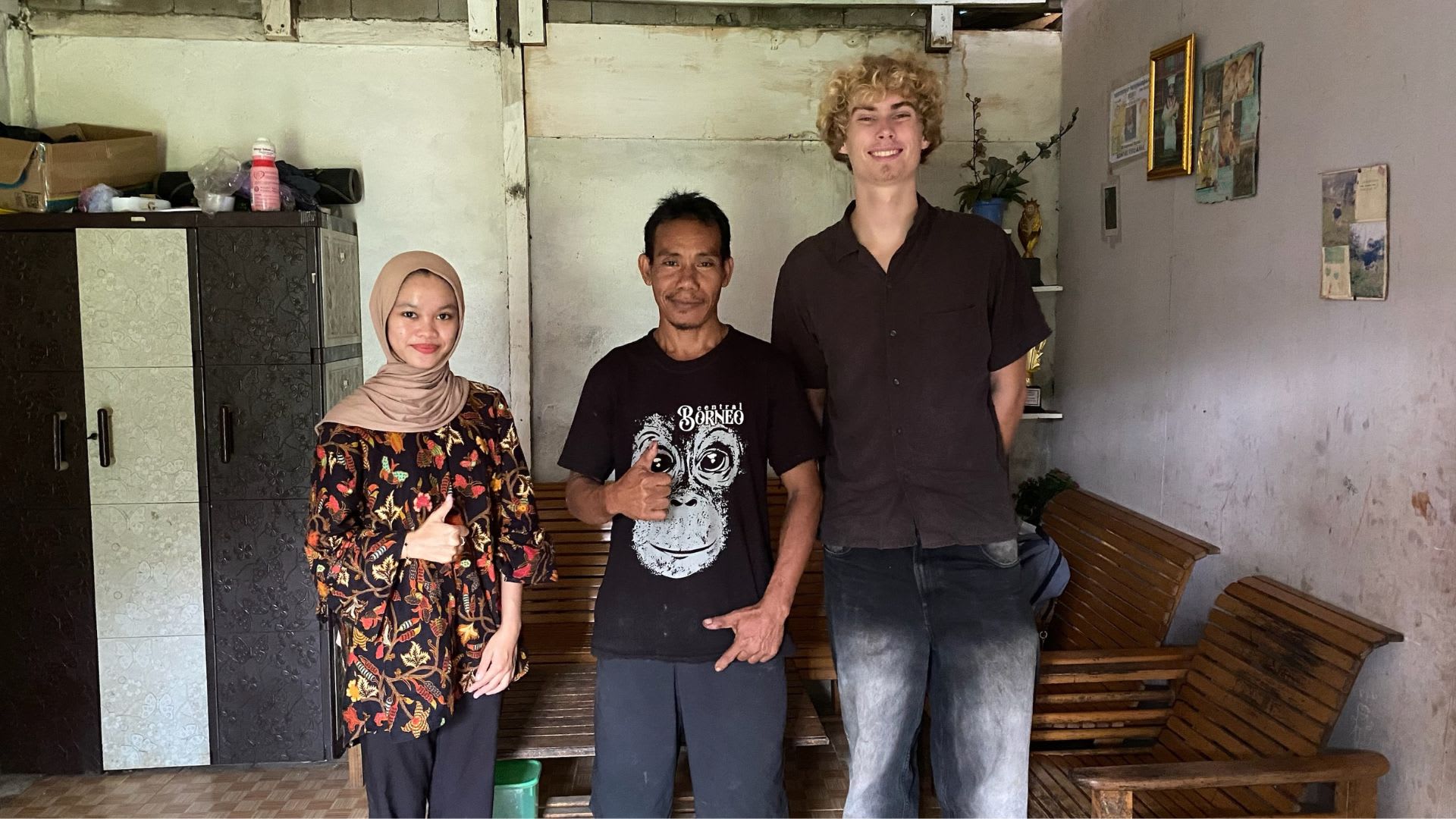
Noah Logan was Taking a Picture with Muslianto at His House
Though his family was initially supportive, the danger and distance of Pak Muslianto's work began to weigh on them. In 2002, their worst fears nearly came true. During a standard tree-downing, something went wrong. The tree tumbled down in an unexpected direction, glancing off Pak Muslianto and throwing him to the side.
Pak Muslianto reflects on the event, “I was traumatized”. Though he escaped with only minor injuries, the near-miss exposed the real dangers of logging. He knew he had to make a change. He began renting his chainsaw out to other loggers instead of putting it to work himself. The income from renting was barely enough to keep his family afloat. With financial pressures mounting, Pak Muslianto had to make a difficult choice. He returned to logging, but adapted his methods to reduce the risks and maximize the profit. “I only took specific orders, for example, swallow bird houses. It’s big money, in one month I could make four or five million Rupiah”, he explains.
For twelve years, this safer method provided for Pak Muslianto and his family. In 2015, he was approached by Pak Hen from Alam Sehat Lestari’s forest guardian program. He suggested that Pak Muslianto put down the chainsaw, and become a forest guardian instead. Pak Muslianto’s motives were clear: “I wanted to stop for the future of the next generations”.
With a new career opportunity, Pak Muslianto put his name on the queue for the Chainsaw Buyback Program. Soon enough, a team from ASRI arrived at his home with the necessary paperwork and a car big enough for his chainsaw and its one-and-a-half-meter-long blade. Though loggers often form a strong bond with their chainsaws, he knew it was best for his family to part with it.
Read also: Chainsaw Buyback program link
After logging the forests of West Kalimantan for eighteen years, Pak Muslianto decided to protect what he had once taken from. As a Forest Guardian for ASRI, he monitors the area around his home, reporting evidence of illegal logging and other environmentally detrimental activities to ASRI. These reports are then used to determine the discounts communities receive at the ASRI Health Clinic and to understand the environmental challenges that West Kalimantan is facing.
Working as a Forest Guardian can be a struggle, especially in communities where outside organizations are met with suspicion. “We have good intentions,” he explains, “but people don’t understand and think we are spies. If there weren't programs from ASRI or the National Park, maybe the forests would be gone, and become palm oil instead.” This mistrust makes it difficult for Pak Muslianto to educate the community about Kalimantan’s most pressing issues.
He most often teaches about palm oil, a new threat to the ecological well-being of West Kalimantan. Palm oil plantations spread as far as the horizon in the area inland of Sukadana and Dusan Sawah. In high demand for cooking products and cosmetics, the draw to palm oil is one that Pak Muslianto is intimately familiar with; fast cash. Because palm oil bears fruit after only three short years, and regrows fruit bunches every seven to ten days, it provides quick and consistent income for local communities.
Pak Muslianto does his best to educate his sub-village of Dusun Sawah about the dangers of Palm oil. He explains how large plantations lead to flooding, polluted drinking water, and a loss of biodiversity. Even so, he understands their resistance, “It’s hard to stop them if there is no guarantee of an alternative. If they stop, what’s the next job?”.
Today, while still working as a forest guardian, Pak Muslianto supplements his income with two part-time jobs. In the dry season, he is a guide in the Gunung Pulung National Park for trails like Lubuk Baji. He accompanies individuals like myself, ensuring their safety while educating them about the incredibly biodiverse rainforest they are immersed in.
Pak Muslianto also works at his general store, “Warung Resty”, affectionately named after his youngest daughter and which he created using the small business loan that the Chainsaw Buyback program provided. “I made more as a logger, but the wage from being a forest guardian is enough for me to have meals with my wife and children.” For Pak Muslianto, spending time with his family outweighs the money he made while logging. Looking back on his past, he reflects, “As a logger, we had no awareness—we were slaves to money. If I was aware, maybe I would have stopped by myself. ASRI helped me become aware. I hope in the future, ASRI can slowly help us work together to stop illegal logging.”

